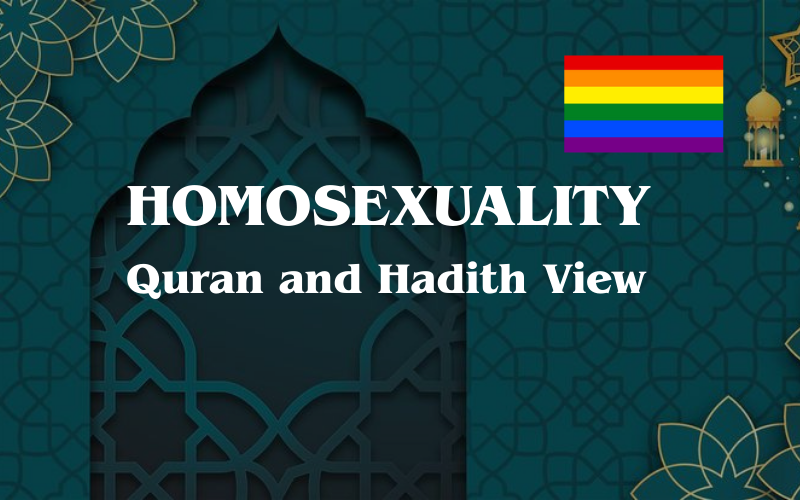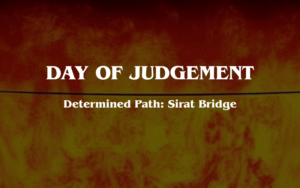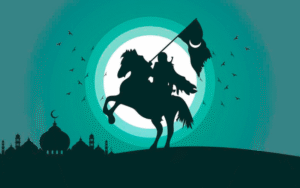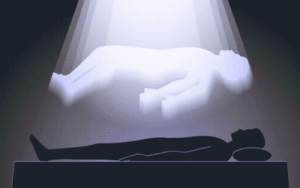Homosexuality in Islam: Quran and Hadith View

All praise is for Allah (SWT). He sent prophets and messengers throughout history to provide clear guidance for humanity. Their primary mission was to teach the oneness of Allah and call people to a righteous life, clarifying what is lawful (halal) and forbidden (haram). Within this divine framework, the discussion of homosexuality in Islam finds its roots in the Holy Quran. The scripture addresses this topic through the story of Prophet Lot (peace be upon him). The Quran presents this account as a significant moral lesson for all future generations, illustrating the consequences of turning away from God’s commandments.
The Quranic Account of the People of Prophet Lot
Allah the Almighty describes Prophet Lot’s call to his people in the Quran. He said:
وَلُوطًا إِذْ قَالَ لِقَوْمِهِ أَتَأْتُونَ الْفَاحِشَةَ مَا سَبَقَكُم بِهَا مِنْ أَحَدٍ مِّنَ الْعَالَمِينَ إِنَّكُمْ لَتَأْتُونَ الرِّجَالَ شَهْوَةً مِّن دُونِ النِّسَاءِ ۚ بَلْ أَنتُمْ قَوْمٌ مُّسْرِفُونَ
“And [We had sent] Lot when he said to his people, ‘Do you commit such immorality as no one has preceded you with from among the worlds? Indeed, you approach men with desire, instead of women. Rather, you are a people who have transgressed.’”
[Surah Al-A’raf (7): 80-81]
According to Islamic tradition, the people of Sodom engaged in public shamelessness and were the first community to practice same-sex acts on a widespread basis. Prophet Lot (peace be upon him) urged them to abandon these actions and turn towards Allah. However, they rejected his message and arrogantly dismissed his call for purity.
The Divine Consequence
Islamic exegesis (Tafsir) details the events that followed. Allah sent angels disguised as handsome men who came to Prophet Lot as guests. When the townspeople heard of their arrival, they surrounded Lot’s home with sinful intentions. In his distress, Lot prayed for protection. The angels then revealed their true purpose:
قَالُوا يَا لُوطُ إِنَّا رُسُلُ رَبِّكَ لَن يَصِلُوا إِلَيْكَ ۖ فَأَسْرِ بِأَهْلِكَ بِقِطْعٍ مِّنَ اللَّيْلِ وَلَا يَلْتَفِتْ مِنكُمْ أَحَدٌ إِلَّا امْرَأَتَكَ ۖ إِنَّهُ مُصِيبُهَا مَا أَصَابَهُمْ ۚ إِنَّ مَوْعِدَهُمُ الصُّبْحُ ۚ أَلَيْسَ الصُّبْحُ بِقَرِيبٍ
“The angels said, ‘O Lot, indeed we are messengers of your Lord; [so] they will never reach you. So set out with your family during a portion of the night and let not any of you look back – except your wife; indeed, she will be struck by that which strikes them. Indeed, their appointment is [for] the morning. Is not the morning near?’”
[Surah Hud (11): 81]
Following these instructions, Prophet Lot and his followers left the city during the night. At dawn, a divine command destroyed the city. The Quran vividly describes this event:
فَلَمَّا جَاءَ أَمْرُنَا جَعَلْنَا عَالِيَهَا سَافِلَهَا وَأَمْطَرْنَا عَلَيْهَا حِجَارَةً مِّن سِجِّيلٍ مَّنضُودٍ
“So when Our command came, We made the highest part [of the city] its lowest and rained upon them stones of hard clay, layer upon layer.”
[Surah Hud (11): 82]
This historical account serves as a powerful reminder within Islam about the importance of adhering to divine guidance.
Scholarly Rulings on Homosexuality in Islam
The teachings of Prophet Muhammad (peace and blessings be upon him) further address this issue. He reportedly expressed great concern for his community regarding acts associated with the people of Lot, stating:
“The thing I fear most for my Ummah (community) is the action of the people of Lot.”
[Ibn Majah, hadis: 2563]
Based on the Quran and prophetic traditions (Sunnah), classical Islamic jurists reached a consensus. They unanimously considered same-sex acts a major sin and therefore impermissible (haram). Scholars view these acts as a violation of divine law and the natural order that Allah established for the sacred institution of marriage between a man and a woman.
In today’s world, many societal views on relationships differ from the traditional Islamic perspective. This can create challenges for Muslims, especially youth, who try to balance their faith with the culture around them.
Navigating the modern discourse on homosexuality in Islam requires a strong foundation in faith and authentic knowledge. Islam does not teach hatred or injustice towards any person. The faith instructs its followers to treat everyone with respect and dignity, even when they disagree on actions or lifestyle choices. For Muslims, the path forward involves seeking guidance from Allah and strengthening Islamic education. Building supportive communities that encourage living by divine principles is also essential. The focus remains on upholding religious values with wisdom and compassion.
Conclusion
The Quranic story of Prophet Lot (peace be upon him) offers a significant lesson for Muslims. It underscores the firm stance in Islam that same-sex acts are contrary to the divine will and the natural human framework. The solution for believers lies in adhering to the clear guidance found in the Quran and the Sunnah.
May Allah grant us a deep understanding of His religion. May He clarify for us what is lawful and forbidden and instill in our hearts a reverence for His commands. We pray He guides us all to the straight path. Amen.
Frequently Asked Questions
What does the Quran say about homosexuality?
The Quran addresses this topic through the story of Prophet Lot (PBUH). It presents the account as a significant moral lesson, describing how his people "approach men with desire, instead of women" and were a people who had transgressed.
Is homosexuality forbidden (haram) in Islam?
Yes. Based on the Quran and prophetic traditions (Sunnah), classical Islamic jurists reached a consensus. They unanimously considered same-sex acts to be a major sin and therefore impermissible (haram).









